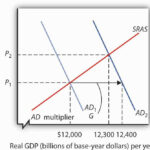Does Your Rmd Count As Income? It’s a crucial question for anyone navigating retirement savings, and at income-partners.net, we’re here to provide clarity and strategies to maximize your financial well-being through strategic partnerships and income generation. Understanding the nuances of RMDs and their impact on your income is essential for optimizing your retirement plan and exploring avenues for income enhancement. Let’s delve into the details of Required Minimum Distributions (RMDs) and their implications for your financial future.
1. What Are Required Minimum Distributions (RMDs)?
Required Minimum Distributions (RMDs) are the mandatory withdrawals you must take from certain retirement accounts once you reach a specific age. The IRS mandates these distributions from pretax individual retirement accounts (IRAs) and employer-sponsored plans like 401(k) and 403(b) plans to ensure that the deferred taxes are eventually paid.
- If you were born between 1951 and 1959, you generally must start taking RMDs at age 73.
- If you were born in 1960 or later, your RMD start age is 75.
